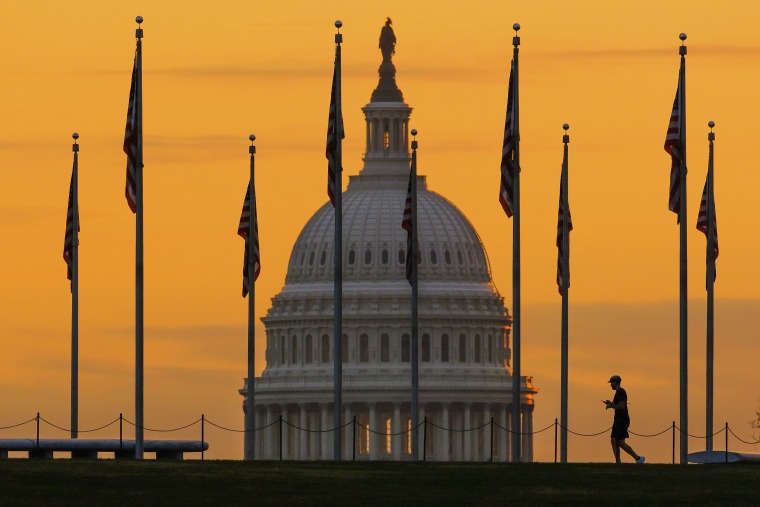WASHINGTON — The Senate voted Thursday to pass a one-week stopgap bill to temporarily avert a government shutdown as congressional leaders finish work on a full-year government funding package.
The vote was 71-19, extending the funding deadline to Dec. 23.
The measure now goes to President Joe Biden to be signed into law after the House passed it Wednesday by a vote of 224-201. Just nine House Republicans joined a unanimous Democratic caucus to vote for the measure, an indication of the narrow margins House Democrats will face in trying to pass the full-year funding bill.
On Tuesday, Capitol Hill leaders reached agreement on a bipartisan framework for a massive government funding bill to address modern needs and prevent federal agencies from functioning on autopilot, as they have for months awaiting congressional action.
To become law, the bill requires a simple majority in the House and at least 10 Republicans to break a filibuster in the Democratic-led Senate. Those votes are expected next week.
House Minority Leader Kevin McCarthy, R-Calif., who is seeking to win over right-wing holdouts in his bid to become speaker, has pushed to torpedo the larger funding bill and restart negotiations next year, when Republicans will take control of the House. His leadership team was also encouraging GOP members to vote the stopgap bill down this week.
But key Senate Republicans want to resolve the issue this year, including Minority Leader Mitch McConnell, R-Ky., and Appropriations Committee Vice Chair Richard Shelby, R-Ala., who is retiring alongside his counterpart, Chairman Patrick Leahy, D-Vt.
McConnell rejected calls from some in his party to walk away from the table, arguing that it's worth it to achieve higher military spending while Democrats hold control.
"We're on defense. We're dealing with cards that we were dealt," McConnell told reporters Tuesday. "And what I would say is given the fact that the Democratic presidency, the House and the Senate — to meet our defense numbers, and to not pay any bonus to the Democrats on the domestic side to achieve the defense number, is far and away the best we could do."


